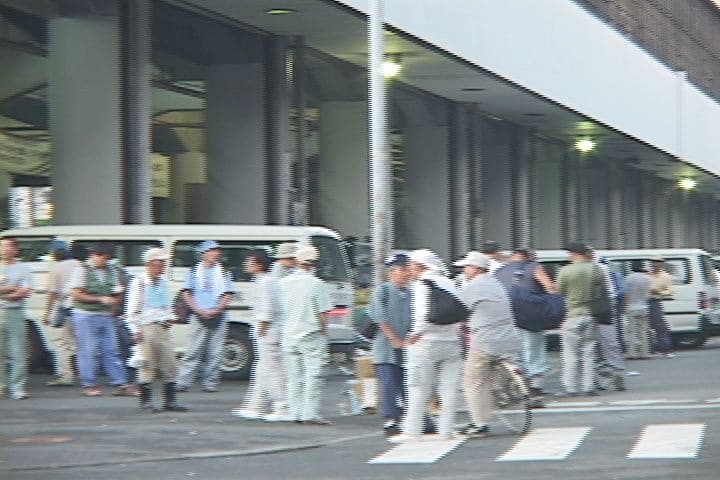NoGada
2005
Independent Documentary
Mi-re Kim | 2005 | Documentary | DV | Color | 89min
SYNOPSIS
Nogada is slang for day laborers working in construction site. ‘Father’ has worked as a Nogada carpenter for all his life, but he is old now and there is no work for him. Multilevel subcontracting construction industry still exploits the workers through its feudalistic system. Under the name of economic growth, the day laborers are expendable and the profits are maximized. The Korean Nogada and Japanese Nogada are much in common. Trying to find a work everyday, they suffer from anxiety of being unemployed.
DIRECTING INTENTION
NoGaDa depicts the lives of daily construction workers in South Korea. Although they are in many ways the backbone of the South Korean economy they are often marginalized. NoGaDas work 10 to 12 hours a day, seven days a week, under dangerous working conditions for low wages without any benefits. As a result of the 1997 IMF economic crisis, many construction workers began to live in the streets, while others had their wages cut by 40% and work hours dramatically reduced. Under the backdrop of this, construction workers and their supporters began to organize and demand for jobs. By focusing on her father, who has been working as a carpenter since 1972, the filmmaker poignantly details the hardships, struggle, and victories of these workers. In their own words, the “NoGaDas” recount the many times of not being paid despite having worked in a particular construction site for close to six months, witnessing workers being injured or killed due to unsafe working conditions by negligent employers; being treated with no respect; and repressed once they start to organize for their rights. It is not a coincidence that NoGaDa is a derivative of a Japanese word, which literally means slave, as the origins of the South Korean construction industry dates back to Japanese colonialism. Thus, the South Korean construction industry is intrinsically linked with that of the Japanese in terms of the structure of the construction site, construction terms, and the system of employing workers. Because of this, the film maker fluidly moves from Japan to South Korea back to Japan and then back to South Korea to compare the differences and similarities of the construction industry. In doing this, the film maker proves that despite differences in language, culture, and national identity, workers are all one facing common challenges as they struggle for justice and dignity.
FESTIVAL & AWARDS
2005 제10회 부산국제영화제
CJ CGV 디지털장편영화제작지원작
DIRECTOR

Mi-re Kim
2003 <노동자다 아니다>
STAFF
Director Mi-re Kim
Producer Mi-re Kim
Screen Writer Mi-re Kim
Cinematographer Mi-re Kim, Ahn-sook Lee, Ok-sun Lee
Editor Mi-re Kim
Art Director Jae-hoon Jung, Sung-ho Huh Sound Yong-soo Pyo
Music Il-kyu In
